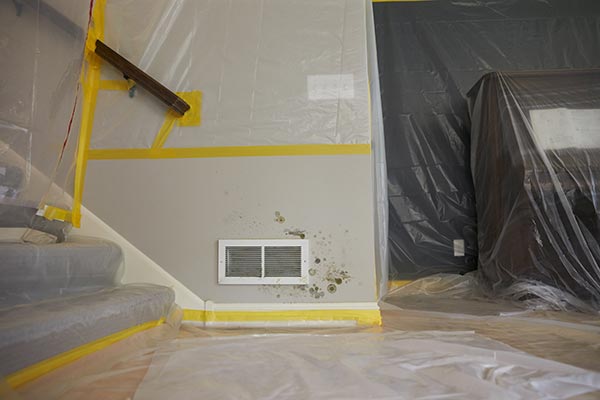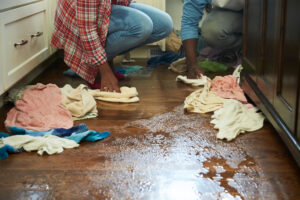Fifty percent of all illnesses in the United States were generated from a crucial root: poor air quality. This has been considered a serious growing problem not only in the US but worldwide.
In the past, homes affected by mold development considered it a minor issue. However, mold has been the utmost cause of morbidity and mortality across all countries. In fact, about 1.5 million people die each year due to the widespread presence of dampness which is again linked to the spread of molds in the air we breathe.
How Does Mold Affect Indoor Air Quality (IAQ)?
- Contaminated air generated by mold has brought about worldwide death as reported by the World Health Organization (WHO) in 2009, published in the Guidelines of Indoor Quality.
- Microbial pollution originating from dampness and mold can be a significant element of indoor air pollution.
- On that note, mold present in the air detrimentally impacts people’s health by aggravating asthma and allergic reactions.
- Since molds are considered fungi that come in diverse forms such as mildew, puffballs, mushrooms, and yeast, they exist all over the place. Without even knowing it, one might have persistently breathed contaminated air.
- Indoor air polluted by harmful mold has undeniably become an obstacle, especially in the US. As mold immensely affects air quality, homeowners have had ample rationale to get rid of the unwanted mold growth.
10 Ways to Improve Indoor Air Quality
Control the source
- Identify the sources of poor indoor air quality and eliminate them through sealing or making adjustments to decrease emissions.
- This is a cost-effective method to keep indoor air quality healthy compared to increasing ventilation because the latter will result in high energy costs.
Maintain clean surroundings
- Regular vacuuming and effective cleaning methods will greatly reduce indoor air pollution by getting rid of contaminants such as dust, dirt, and pet dander.
- Items with the tendency to attract allergens, such as bedding and curtains, must be washed regularly.
Declutter
- Remove unnecessary household items that can trap dust and significantly contribute to poor indoor air quality.
Keep plants outdoors
- While indoor plants can help reduce stress, they can trigger allergies for some people and even aid mold growth.
- If a family member has allergies, it may be best to keep greenery outside.
Improve home ventilation
- Proper ventilation helps remove airborne pollutants. Consider installing exhaust fans in kitchens or bathrooms to increase the outdoor air ventilation rate.
- Read the U.S. Dept. of Energy's Energy Saver: Whole-House Ventilation to check house ventilation system options.
Utilize air purifiers
- For occupants with allergies, an air purifier can help if the source of indoor air pollution cannot be controlled.
- Place them in the commonly occupied areas of the house to capture allergens and reduce their number.
Utilize air cleaners
- While most air cleaners cannot remove gaseous pollutants, they are generally effective at removing particles that are suspended in the air.
- Look up the best type and size of air cleaner that is most suited to the property. Learn more about air cleaners.
Change filters regularly
- Air filters prevent contaminated air from being circulated throughout the home by trapping dust, dirt, and other airborne particles
- Having air ducts cleaned can also significantly lower the risk of recirculating dust.
Check for the signs of mold growth
- Use a dehumidifier in damp areas, such as the basement, to prevent mold growth.
- If mold is noticed, immediately contact a professional mold removal company to have it remediated as soon as possible.
Allow fresh air to enter
- Letting fresh air in is a significant factor in promoting healthy indoor air quality.
- This can be achieved by opening windows and doors or through HVAC outdoor air intakes.
Schedule a Mold Inspection and Remediation Appointment
ServiceMaster by Wright utilizes specialized equipment in performing mold inspection and mold remediation; our 40-year experience in the field guarantees urgent mold removal to free your home from contaminants.
- We are available 24 hours a day, 7 days a week at (239) 431-9947 for an emergency response to mold damage.
- You may also schedule an appointment through our online contact form.

We service businesses and homeowners in Bonita Springs, Bradenton, Cape Coral, Captiva, Englewood, Estero, Fort Myers, Iona, LaBelle, Lehigh Acres, Longboat Key, Marco Island, Naples, North Port, Port Charlotte, Punta Gorda, San Carlos Park, Sanibel Island, Sarasota, Siesta Key, and Venice, Florida.




